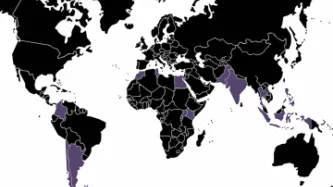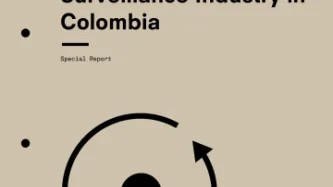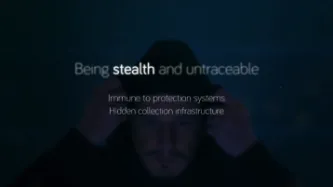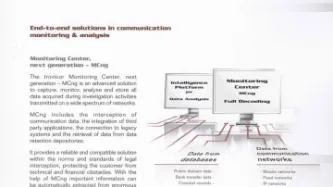Search
Content type: Long Read
Privacy International is celebrating Data Privacy Week, where we’ll be talking about privacy and issues related to control, data protection, surveillance and identity. Join the conversation on Twitter using #dataprivacyweek.
Exercising the right to privacy extends to the ability of accessing and controlling our data and information, the way it is being handled, by whom, and for what purpose. This right is particularly important when it comes to control of how States perform these activities.…
Content type: Press release
The release of a new report by Privacy International exposes Colombia's intelligence agencies' previously unknown history of developing communications surveillance capabilities outside of lawful authority.
The report “Shadow State: Surveillance law and order in Colombia” reveals, via previously unreleased documents, the Colombian police agencies' and intelligence services' long history developing surveillance systems. Rather than building a well-regulated system of surveillance after Colombia…
Content type: Report
This investigation focuses on the techniques, tools and culture of Kenyan police and intelligence agencies’ communications surveillance practices. It focuses primarily on the use of surveillance for counterterrorism operations. It contrasts the fiction and reality of how communications content and data is intercepted and how communications data is fed into the cycle of arrests, torture and disappearances.
Communications surveillance is being carried out by Kenyan state actors, essentially…
Content type: News & Analysis
Today, Privacy International is publishing the result of a global effort to benchmark surveillance policies and practices in the countries that are part of the Privacy International Network. We're calling it the 'State of Surveillance'.
We designed a survey of questions based on some key issues: statistics about the communications infrastructure of the country; what civil society organisations and groups that analyse privacy issues; the international and domestic legal framework…
Content type: Press release
Privacy International's new report exposes the companies that have built the Colombian Government's controversial and highly invasive surveillance systems. The report “Demand/Supply: Exposing the Surveillance Industry in Colombia” shows the extensive dealings that companies from Israel, the UK, the USA, Finland, and New Zealand, among other countries, have had in supporting Colombian government agencies in purchasing surveillance equipment. Many of the company's customers were agencies that did…
Content type: Report
Over a dozen international companies are supplying powerful communications surveillance technology in Colombia. Privacy International examines the actors across the world involved in facilitating state surveillance.The report is available in English and Spanish.
Content type: Report
For nearly two decades, the Colombian government has been expanding its capacity to spy on the private communications of its citizens. Privacy International's investigation reveals the state of Colombia's overlapping, unchecked systems of surveillance, including mass surveillance, that are vulnerable to abuse.
See the report in English and Spanish.
Content type: News & Analysis
Here are eight things we have learned from this week's hack of some 400GB of internal company material and correspondence from Italian surveillance company Hacking Team.
The Citizen Lab was right
The Citizen Lab, who in 2014 identified some 21 countries that are potential customers of Hacking Team, were right about all of them. A 2015 report stated that there was likely to be more. In fact, at least 45 countries are purchasers of Hacking Team's…
Content type: News & Analysis
German surveillance technology company Trovicor played a central role in expanding the Ethiopian government's communications surveillance capacities, according to a joint investigation by Privacy International and netzpolitik.org.
The company, formerly part of Nokia Siemens Networks (NSN), provided equipment to Ethiopia's National Intelligence and Security Service (NISS) in 2011 and offered to massively expand the government's ability to intercept and store internet…
Content type: News & Analysis
Last year, UK-based surveillance company Gamma TSE sold the Indonesian military US$ 6.7 million worth of equipment as part of the military's weapons modernisation effort. As early as 2005, Indonesian officials were soliciting the advice of a close partner of Gamma, Germany-based Elaman, to create technical surveillance unit (TSU), according to a white paper published as part of the WikiLeak SpyFiles and found in the Surveillance Industry Index.
Gamma and Elaman are…
Content type: News & Analysis
Surveillance companies selling mass and intrusive spy technologies to human rights-abusing governments often are benefitting from the financial and institutional support from their home government, revealing a more closely-linked relationship between the sector and the State than previously believed.
Recent revelations concerning the funding of Hacking Team's surveillance technology with public money highlights the role of states in funding the development of surveillance…








